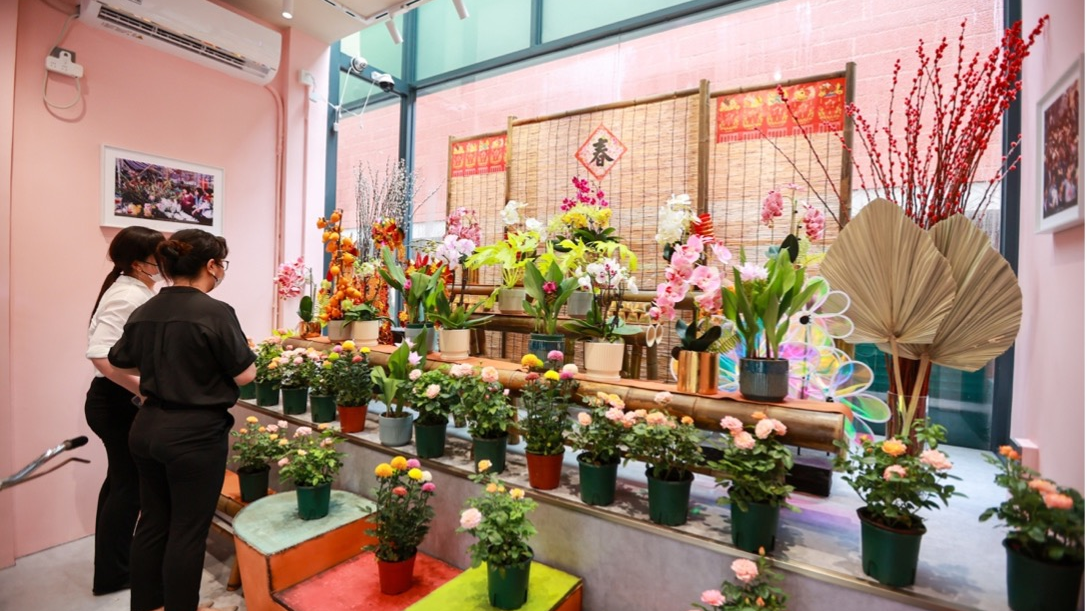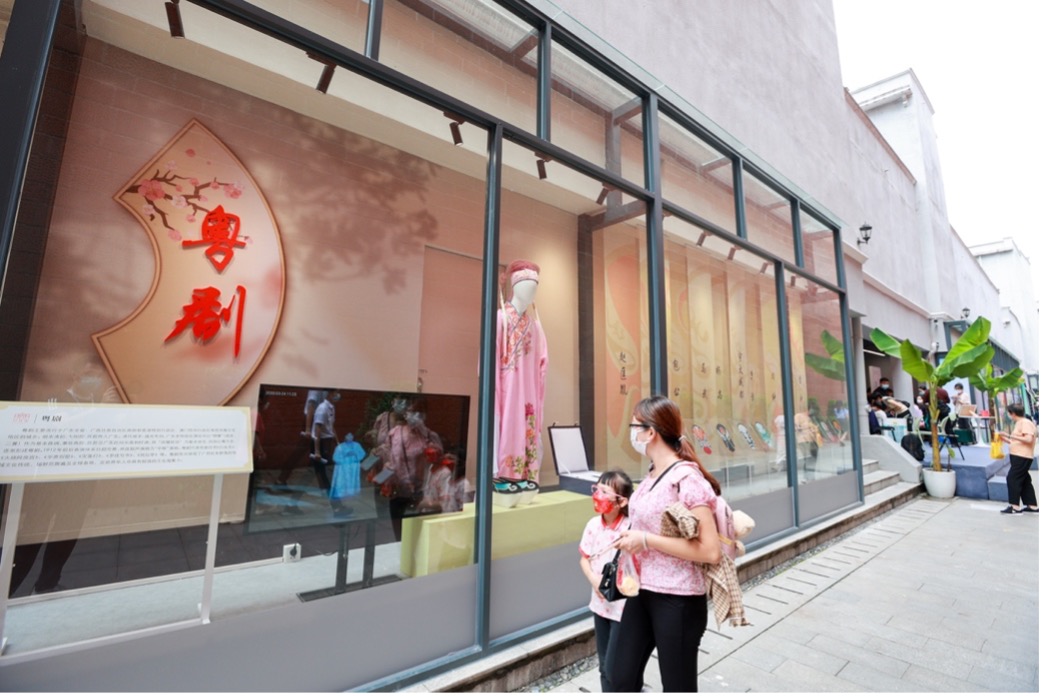
Flower market shopping is one of Guangzhou locals' favorite activities. /CGTN
Flower market shopping is one of Guangzhou locals' favorite activities. /CGTN
An intangible cultural heritage area in Guangzhou, capital of south China's Guangdong Province, opened on June 12, showcasing ancient Chinese people's life and norms from a cultural perspective.
This is the second intangible cultural heritage block in Guangzhou. Located on Beijing Road – the central axis of Guangzhou – the block will host intangible cultural heritage displays and events. The first such street was set in Yongqingfang block in Liwan District, which has already become a hub of local cultural and creative industries.
On the opening day, a concert featuring traditional Cantonese music and poems was held in Beijing Road to commemorate the launch of the intangible cultural heritage blocks. Artists from Guangdong performed classical poems with dance and played traditional musical instruments, including the Chinese zither.

A view of the intangible cultural heritage themed street in Guangzhou City. /CGTN
A view of the intangible cultural heritage themed street in Guangzhou City. /CGTN
Aiming to raise the public's cultural confidence and awareness, this intangible cultural heritage block regularly demonstrates cultural relics and records and give VR/AR shows about the inheritance of intangible cultural heritage. Famous Cantonese food, arts, celebrities and industries are introduced to visitors. Multiple activities in June and July will be held to showcase the intangible cultural heritage.
Some representative inheritors of rice paper pith paintings, paper cuts, and porcelain have been sent to institutions of high education to learn about changes in social needs. Their products have absorbed modern fashions and characteristics. And their courses on such arts could bring a traditional essence as well as a modern vibe to students.
In addition to displaying cultural relics from Guangdong, this block focuses on the role of intangible cultural heritage in strengthening people's cultural confidence and developing cultural tourism.
China has, in recent years, continued to promote regulations, classified protection, capacity building and international exchanges concerning intangible cultural heritage. Since the Intangible Cultural Heritage Law came into effect in 2011, over 25 provinces and regions have issued guidelines for the protection of their intangible cultural heritage.
Click here to review the livestream:
Let's stroll along Guangzhou's new Intangible Cultural Heritage Block

